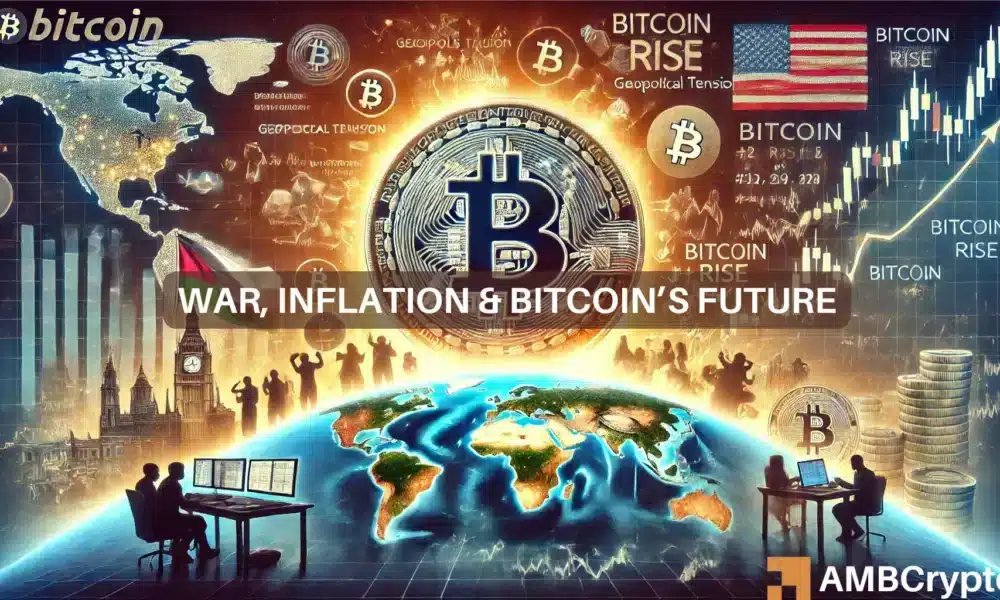- Arthur Hayes predicted that Bitcoin would rise due to increased money printing in the US during international conflicts.
- Bitcoin was trading at $67,862.17, with significant geopolitical concerns looming.
Bitcoin [BTC] enjoyed a bullish phase, trade at $67,862.17, at the time of writing. BTC saw an impressive 11% increase in the past week.
However, as geopolitical tensions escalate, concerns about inflation and higher government spending are increasing, which could potentially push BTC back into a bearish trend.
Arthur Hayes remains optimistic
Despite these challenges, Arthur Hayes, co-founder of BitMEX, remains optimistic and predicts significant upside for Bitcoin.
In a recent one blog postHayes argued that the US government’s financial maneuvers in response to conflict in the Middle East will likely lead to more money printing, creating the next bullish rally for BTC’s price.
He said,
“We know that war is inflationary. We understand that the US government needs to borrow money to sell bombs to Israel.”
He added:
“We know that the Fed and the US commercial banking system will buy up this debt by printing money and growing their balance sheets. That’s why we know Bitcoin will soar in fiat terms as the war intensifies.”
Concerns still prevail
Despite the optimism, concerns remain about Bitcoin, mainly because of geopolitical conflicts consequences for the crypto industry.
Bitcoin mining rigs represent some of the most valuable and essential physical assets in the cryptocurrency ecosystem, and the destructive nature of war poses significant risks to their operation.
However, Hayes pointed out that the current conflict between Israel and Iran is largely a proxy war involving the US and EU on one side and China and Russia on the other.
He suggested neither side wants a confrontation, which could ease the impact on crypto.
He said,
“According to some media, Iran is the only country where Bitcoin mining has flourished. Iranian Bitcoin miners are responsible for up to 7% of the global hash rate, depending on the source.”
Lessons for Bitcoin
Drawing parallels to historical events, Arthur Hayes referenced the 1973 Arab oil embargo and the 1979 Iranian revolution to illustrate how hard assets like gold tend to thrive during energy crises and inflationary periods.
He argues that BTC, often referred to as “digital gold,” is likely to follow a similar trajectory in the current economic landscape.
However, Hayes also advised caution and warned traders to brace for possible volatility.
He emphasized that if the ongoing conflicts lead to further destabilization of global markets, the crypto sector could experience a significant decline.
As expected, he ended it best when he said:
“The best thing you can do is get yourself and your family out of harm’s way and then put your capital into a vehicle that will outperform fiat reduction and maintain its energy purchasing power.”
In short, while geopolitical tensions may have short-term effects, their impact may be tempered by changing liquidity conditions.

